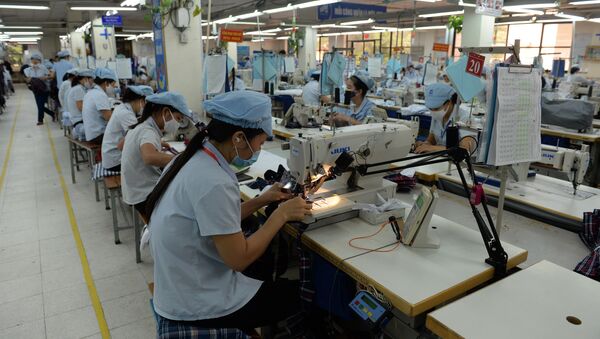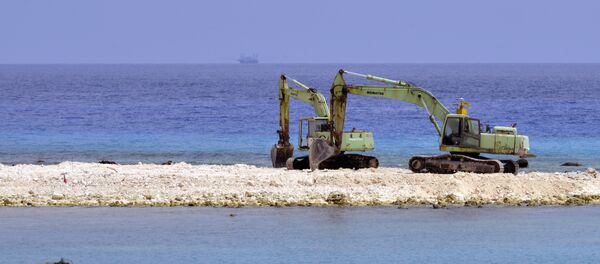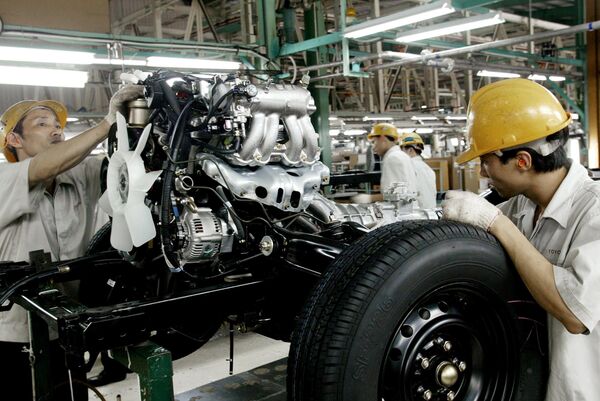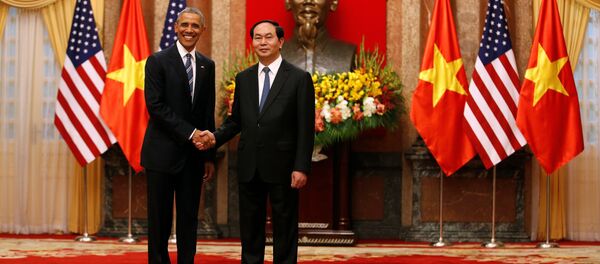Negotiations on the free trade deal were undertaken by Australia, Brunei, Canada, Chile, Japan, Malaysia, Mexico, Peru, New Zealand, Singapore, the United States and Vietnam, and concluded on October 6 2015.
However, the agreement must be ratified by at least six countries that account for 85 percent of the combined gross domestic production of the 12 TPP nations. Most of the countries have yet to do so, and the Obama administration doesn't have enough support in Congress to ratify the agreement before the end of his presidency.
Given the next president's stated opposition, it appears unlikely that the deal will come to pass in its current form.
Pham Quang Minh, rector of Hanoi National University's University of Social Sciences and Humanities, told Sputnik Vietnam that Vietnam was counting on the economic advantages presented by tariff-free trade with the 11 members of the bloc.
"The TPP was a hope for Vietnam for some time. If it had come to pass, then the Vietnamese economy would have had more opportunities to increase exports, create more jobs and more actively carry out reform. And, as a result of that, Vietnamese politics would have improved. There were hopes and expectations," Pham said.
"If the US Congress doesn't ratify the TPP agreement, it will create favorable conditions for a series of other countries of the region, especially China. Being the most powerful economy of the region, Beijing has expressed readiness to create a new economic order, a new economic 'market' in which it will play the most important role. Obviously, this (Trump's election and the Congressional delay in ratifying TPP) is very good news for China," Pham said.
"Another interested party in Japan, they were very interested in TTP. The TPP agreement was passed by the Japanese parliament even before the results of the US elections were announced."
"Vietnam has always worked from the principle 'don't put all your eggs in one basket,' and wasn't completely relying on TPP. But now it is necessary to activate economic reforms. Vietnam has to wake up and quickly adapt to the new economic situation," Pham said.
Despite the US' likely absence from the deal, other TPP members appear keen to press on with a free trade agreement.
The 21-member Asia-Pacific Economic Cooperation (APEC) began its two-day summit in the Peruvian capital Lima on Thursday, and leaders of the TPP member countries met on the sidelines to discuss a way forward.
On Friday Mexican Finance Minister Idelfonso Fajardo said that he had met with officials from five other TPP signatories: Australia, Malaysia, New Zealand, Japan and Singapore. They agreed to forge ahead with the agreement regardless of what the new US administration decides, the Colombia Basin Herald reported.
"For the first time ever, really, we've got the United States under president-elect Trump going into a very different space," Key said, who expressed hope that some small changes to the TPP agreement can be made to placate the US President.
"Something significant enough for Donald Trump to be able to say he has got a better deal, but not both so time absorbing or significant that we couldn't get it done quickly," Key said, New Zealand's Stuff news website reported.





